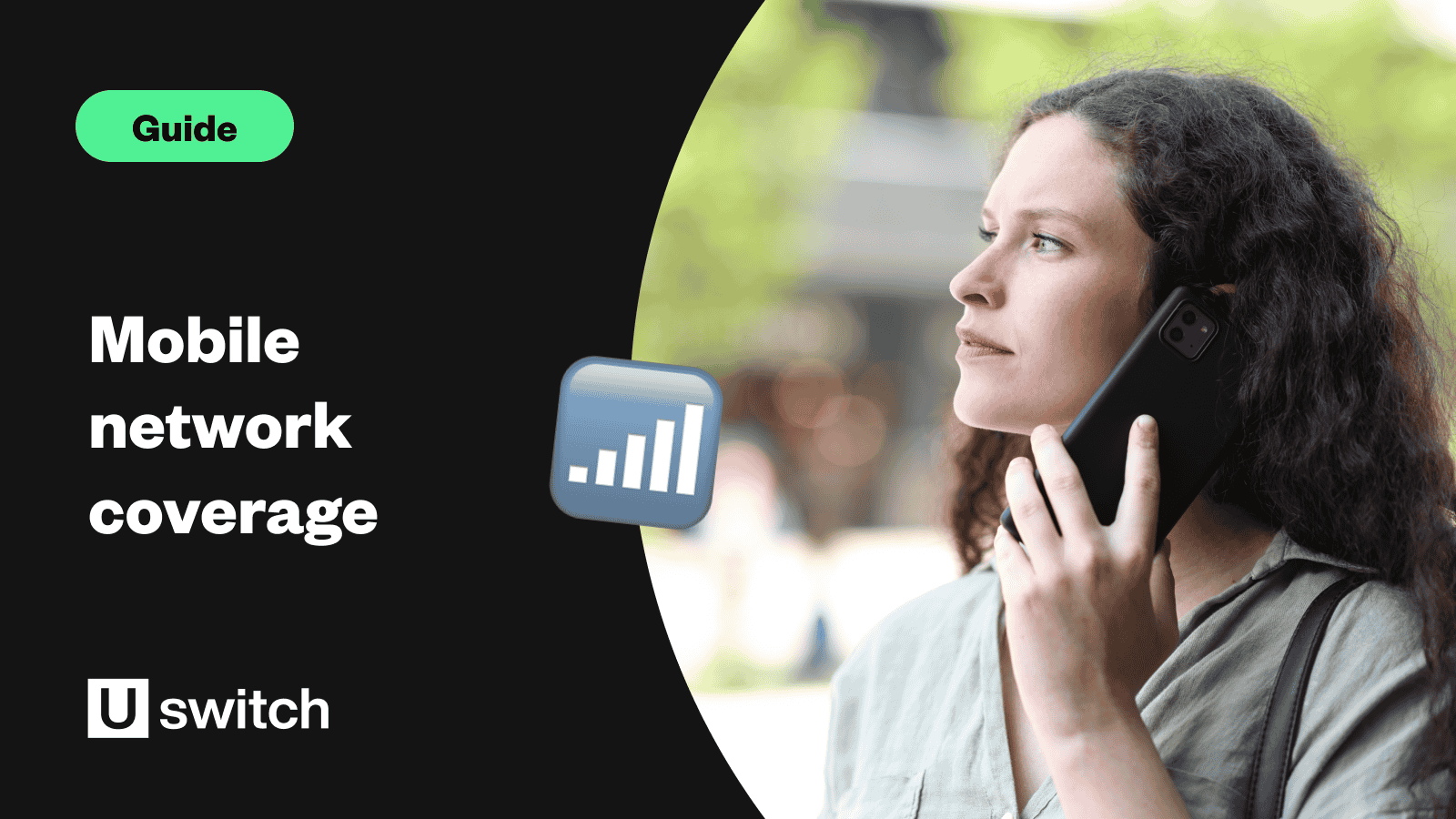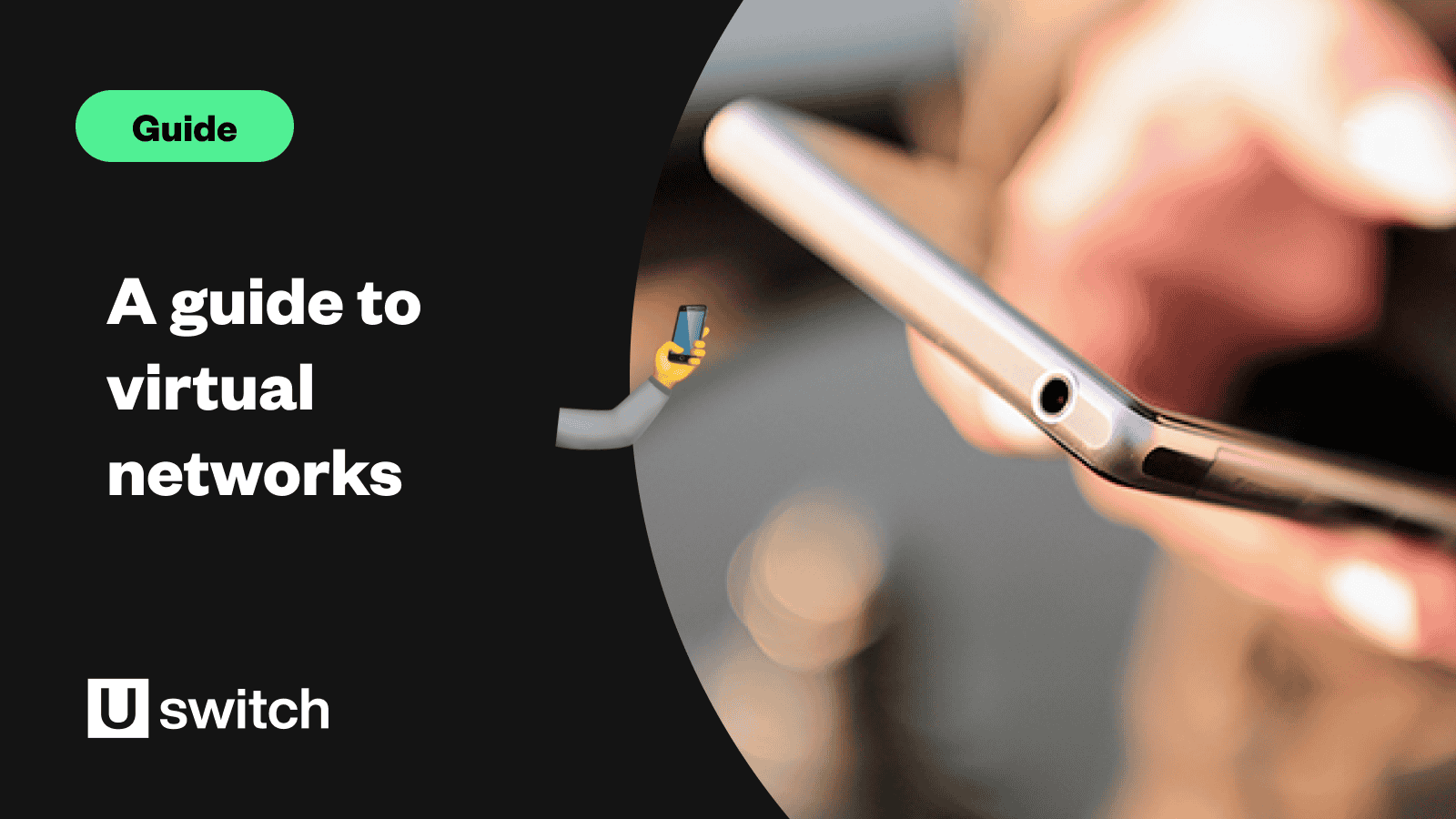- Uswitch.com>
- Mobiles>
- Reviews>
- UK MVNOs: a guide to virtual networks
MVNOs: a guide to virtual networks
Virtual networks, sometimes called leased networks or MVNOs, offer you the same coverage as a big network for a fraction of the price.
Here, we explain exactly what an MVNO in the UK is and talk you through their pros and cons.
What is a virtual network?
You might not have heard the phrases 'virtual network', 'leased network' or 'MVNO' before. But chances are you’re more familiar with them than you realise, and maybe even use one.
MVNO stands for Mobile Virtual Network Operators. These are third-party companies that lease telephone and data spectrum from the main operators.
In other words, the likes of Giffgaff and Tesco Mobile piggyback off the spectrum they’ve bought from EE, O2, Three and Vodafone.
Sign up for one of the MVNOs, and you’ll get the same coverage as you would from the parent network. And for that reason, it makes sense to know which MVNO uses which network.
Here’s a list of the main MVNOs in the UK.
And that’s just for starters. There are around 1,000 MVNOs worldwide, accounting for more than 10 per cent of all mobile users. So why have they been so popular?
Virtual networks: pros and cons
Price is a major factor. Virtual networks traditionally offer contracts much cheaper than their parent networks.
They also offer some good value SIM only deals. So if you already own a handset you could save yourself some money.
SIM only deals have been on the rise of late due to a phenomenon we call ‘handset fatigue’.
This is the term that refers to the rising trend of people getting tired of constantly having to spend hundreds of pounds to upgrade to the newest and shiniest phone.
There are some downsides to choosing an MVNO, though.
Certain benefits are off limits, like O2 Priority, which lets you buy tickets to gigs and live events before they go on sale, and gives you offers from high street stores. Vodafone’s VeryMe rewards scheme is also a no-no.
But some have their own benefits. Tesco Mobile, for example, offers 4G at no extra cost and gives you Tesco Clubcard points for every £1 you spend.
Similarly, Mobile by Sainsbury’s gives you double Nectar points on top-ups. So there are plenty of reasons to consider an MVNO.
But which is for you? Let’s take a closer look at some of the most popular.
giffgaff
Network: O2
Much cheaper? In a word: yes. At the time of writing, the iPhone 15 can be yours for a one-off fee of £25, and then £33.92 a month for 24 months, with unlimited everything. In comparison, Three charges £30 upfront, and then £37.71 a month for the same unlimited monthly allowances.
Pros: You can call and text other giffgaff customers for free, though you will have to top up at least every three months.
Cons: It only sells 24 handsets and only four of them run Windows Phone, so the selection isn’t fantastic.
Browse giffgaff SIM only deals
Tesco Mobile
Network: O2
Much cheaper? As you’d expect, the answer’s a yes. On cheaper phones, expect to save about £5 per month over the course of your contract. Or about £120 in total.
Pros: You earn Tesco Clubcard points for every £1 you spend, whether you’re topping up or racking up a monthly bill.
Just make sure you register your Clubcard to your Tesco Mobile handset.
Tesco Mobile has also won a raft of awards from us over the years, including Best Customer Service Support, Best Network Coverage, and Best Value for Money for both pay monthly and pay as you go.
Cons: Tesco Mobile is not the top choice for those seeking optimal 5G coverage or the latest high-speed 5G technology. Tesco faces challenges in competing with budget-friendly networks on pricing.
Browse Tesco Mobile pay monthly handset deals
Browse Tesco Mobile SIM only deals
Virgin Mobile
Network: EE
Much cheaper? On flagship phones, we calculated fairly minor savings throughout the contract. Perhaps a few pounds in total for monthly allowances that are broadly comparable to the likes of Vodafone and O2.
Pros: There’s a very good selection of pay as you go handsets, and you can buy pay as you go or pay monthly SIM cards. Existing Virgin Media customers can get better deals on SIM cards.
Cons: It’s much more expensive if you’re not a Virgin Media customer.
Browse Virgin Mobile SIM only deals
iD Mobile
Network: Three
Much cheaper? It is. iD Mobile SIM only deals start from a very reasonable £4.50 per month. That's for a 4G service too.
Pros: iD Mobile customers who are signed up to its Takeaway tariff get free roaming in up to 29 countries across the globe.
Choose a Shockproof plan and you can set up a buffer if you exceed your monthly usage. This means you can only exceed your allowance by an amount you have selected in advance, so you won't rack up unexpectedly high charges.
Cons: As with all MVNOs, if you're with iD Mobile you can't add broadband and TV to your bundle to save on your total monthly outgoings. But perhaps at these low prices for standalone mobile contracts, that doesn't matter too much.
Browse iD Mobile pay monthly handset deals
Browse iD Mobile SIM only deals
Asda Mobile
Network: Vodafone
Much cheaper? Definitely. On a 30-day SIM only contract, £10 a month gets you unlimited minutes, text messages, and 12GB of 5G data.
Asda Mobile also offers a range of tariffs for just £5 a month. And the pay as you go tariff is just 8p per minute and 4p per text.
Pros: Apart from the price, there doesn’t seem to be any other benefits.
Cons: The range of handsets isn’t fantastic
Browse ASDA mobile pay monthly handset deals
Browse ASDA mobile SIM only deals
Not sure MVNOs offer what you're looking for? Check out what the UK's larger carriers offer here: mobile phone networks
Read more...

What is a mobile network? And which network's best?
Find out everything you need to know about UK mobile phone networks in our networks guide. We take a network-by-network look at what's on offer.
Learn more
Best mobile network coverage in the UK
Which network offers the best mobile coverage 2024? We take a look at the major mobile phone networks and the sort of coverage & connection speeds to expect.
Learn more
Which mobile network offers the best perks?
Which mobile networks offer the best extras? And which ones will suit you best? Read on our guide to find out.
Learn more
